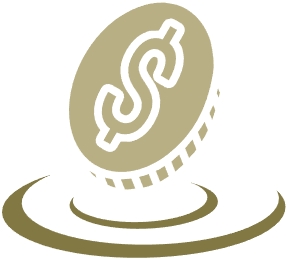Do you need to pay tax on the personal loan you take out?

If you get the personal loan you’ll be given a lump sum to spend however you like. However, do you need the obligation to make tax payments on this money?
If you’ve got an individual loan typically, it’s not something you should think about when you fill out the tax returns. However, there are a number instances when things may become more complex.
How do I get a loan for personal use?
personal loans are an excellent alternative when you require the cash you need to pay for an expensive cost, such as unanticipated medical expenses, wedding, or even a home renovation project.
They are generally unsecure, meaning that you don’t need to offer any asset as collateral.
Personal loans are flexible -they can be used to pay for almost anything. They can save your life when unexpected expenses arise and are also useful for taking care of debt consolidation. It is possible to convert expensive credit card debt into the form of a personal loan with lower rates to pay off debt more efficiently and cost-effectively.
If you get personal loans There aren’t any surprises. The typical loan is an amount that is fixed with a fixed rate of interest and have an agreed-upon timeframe to repay the loan.
The rates of interest vary from lender to lender and are based on a variety of factors, such as the credit score of your client..
Do you have to pay taxes on personal loans?
Personal loans are generally not tax-deductible. Because personal loans are the money you take out and have to repay the loan, it’s not considered to be income that you must pay tax on.The IRS is primarily interested in the earnings you make and save.
This is the case for in the event that you remain current with credit and settle the debt on time and in complete.
If you are in a position to fall behind on your taxes or cease to make these payments, the tax question could have a different solution.
A personal loan may result in tax repercussions
Credit that was cancelled
If your situation or income ever changes and you find that you can not afford the payment on your loan, you may be in the position of defaulting on the loan — and a portion or all of it could end up being canceled through bankruptcy or collaborate with an agency for credit management.
If you cancel your loan the lender will send you with a 1099-c tax form that you’ll need to submit with your tax return in order to document the amount of debt that was canceled.
The IRS is concerned because if you don’t repay the loan amount, you’re no anymore borrowing the money, but instead you’ve received it as income to the view of the tax authorities.
Let’s say you took out a loan of $20,000 and were able to pay back half of the amount before defaulting on the loan. If you don’t plan to pay the remainder of $10,000 then the IRS will require you to declare it to be income in the tax returns -and to pay tax on it.
Family or friends members
There’s another scenario in which personal loans can have tax implications. This is when the loan is a personal loan — one that is, it’s between family or friends members.
If you provide someone with the opportunity to take out a “loan” with either no interest or a low interest rate or a lower interest rate, the IRS could consider it more of a gift than the term loan. Also, taxation on gifts can be an issue.
They’re not usually a concern for the person receiving the gift — the obligation to report lies with the gifter or lender. If that’s the case in the transaction, and the amount is greater than the exclusion for gift tax ($15,000 for 2020 that’s $11.58 million over a lifetime) You’ll probably be required to file an additional tax form on the tax returns.
The person who receives the money will not have to declare it as income or pay tax on it, even if it’s not paid back.
What is the rate of interest on personal loans?
If you take the interest you pay on loan repayments including student loans as well as your mortgage every year, you might be wondering what happens to the interest on my personal loan?
Most times it’s not in this manner. There’s no tax write-off available for personal loans, in the event that you prove you used the money to pay to cover business expenses. If this is the case you’ll need to talk with an accountant prior to making your tax filings to confirm that you’re eligible to a tax deduction and that you’re declaring it correctly.
If you’re using an Tax software application most of them can connect you to an accountant in case you want to speak about your loan.
The final line
In general, a simple personal loan for personal expenses will not add or lower your tax obligation.
This Company Will Help Nearly Anyone Get Rid of Credit Card Debt
Are you feeling like the process of paying on your credit cards is a perpetual cycle with no resolution in the distance? It’s not just you. Personal loans offer lower rates of interest and fixed payment terms that make it a wise option for consolidating credit card debt with high interest. It saves money, makes payments simpler and speeds up debt repayment.
Fiona is a no-cost online service that provides the most effective lending alternatives to pay off your credit card debt quickly — and also save thousands of dollars in interest.









Leave a Reply